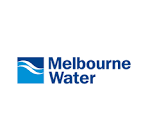Melbourne Water Corp

Total capacity of implemented projects
10 - 50 MW
Countries of projects presence
1
Melbourne Water Corp is a government-owned corporation that provides water supply and sewage treatment services to the city of Melbourne and surrounding areas. In recent years, the company has expanded its focus to include renewable energy projects, particularly in the sectors of biomass and waste.
Biomass is a type of renewable energy that is derived from organic matter, such as wood chips, agricultural waste, and even sewage sludge. Melbourne Water Corp has been exploring the potential of biomass energy for several years, and has already implemented a number of successful projects.
One of the company's most notable biomass projects is the Eastern Treatment Plant (ETP) Bioenergy Project. The ETP is Melbourne's largest sewage treatment plant, and the Bioenergy Project involves the installation of a biogas cogeneration system. This system uses the methane gas produced by the sewage treatment process to generate electricity, which is then used to power the plant itself. The system is expected to generate around 34,000 megawatt hours of electricity per year, which is enough to power around 6,000 homes.
Melbourne Water Corp has also been exploring the potential of using biomass as a fuel source for heating and cooling. The company has installed a biomass boiler at its headquarters in Docklands, which uses wood chips as a fuel source to provide heating and hot water. The boiler has a capacity of 1.5 megawatts, and is expected to reduce the company's greenhouse gas emissions by around 1,500 tonnes per year.
In addition to biomass, Melbourne Water Corp has also been developing renewable energy projects in the waste sector. Waste-to-energy is a type of renewable energy that involves converting waste materials into electricity or heat. Melbourne Water Corp has been exploring the potential of waste-to-energy for several years, and has already implemented a number of successful projects.
One of the company's most notable waste-to-energy projects is the Dandenong Bioenergy Project. This project involves the conversion of organic waste from the Dandenong Market and surrounding businesses into biogas, which is then used to generate electricity. The system has a capacity of 1.4 megawatts, and is expected to generate around 10,000 megawatt hours of electricity per year, which is enough to power around 2,000 homes.
Melbourne Water Corp has also been exploring the potential of using waste materials as a fuel source for heating and cooling. The company has installed a waste-to-energy system at its Western Treatment Plant, which uses biogas produced from sewage sludge to generate electricity and provide heating and cooling. The system has a capacity of 2.5 megawatts, and is expected to reduce the plant's greenhouse gas emissions by around 80,000 tonnes per year.
Overall, Melbourne Water Corp's renewable energy projects in the biomass and waste sectors have been highly successful. The company has demonstrated a strong commitment to sustainability and reducing its environmental impact, and has shown that renewable energy can be a viable and cost-effective alternative to traditional fossil fuels. As the world continues to transition towards a low-carbon economy, Melbourne Water Corp's innovative renewable energy projects will undoubtedly play an important role in shaping the future of energy production in Australia.